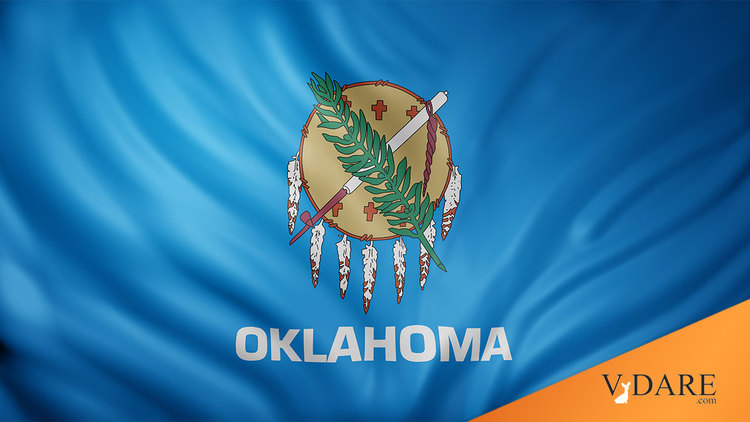


By Steve Sailer
01/20/2014
In Gore Vidal’s historical novel Empire, President Theodore Roosevelt exclaims in 1907 about the new state of Oklahoma and its two new Democratic senators:
"They have also, in their infinite Western wisdom, sent us a blind boy for one senator, and an Indian — an Indian! — for another."
The blind senator, Thomas Gore, was Vidal’s maternal grandfather (but only a distant relation of Al Gore). Senator Gore had gone blind in a couple of childhood accidents.
My general impression is that the number of blind people is declining. When I was young, blind musicians were prominent (e.g., Ray Charles, Stevie Wonder, Jose Feliciano, and Ronnie Milsap were all famous around 1970), but that seems to be less true these days. The Lt. Governor of New York recently was blind, but he ran into trouble when he moved up to the top job after Gov. Spitzer’s resignation. It’s hard being blind.
The other 1907 Oklahoma senator, Robert L. Owen, is identified on the Cherokee rolls as 1/16th Cherokee, although that might have been an exaggeration.
Still, he appears to have inherited some good hair genes from his Indian ancestor. Wikipedia reports: "He was a tall man of erect bearing, who kept a full head of hair to the end of his life."
He publicly identified as part-Cherokee and was thus employed in various Indian affairs for years in the late 19th century. From 1900 to 1906 he represented the Eastern Cherokee in their famous case over having their lands stolen from them by Andrew Jackson, winning almost $5 million in a 1906 Supreme Court decision.
As Thomas Babington Macaulay pointed out in regards to English attitudes toward Scottish Highlanders, fear and loathing rapidly changed to thinking Scots were glamorous once they were subdued and longer likely to go on the warpath. So, by early 20th Century, being a little bit Indian was cool.
Both senators were highly successful, Owen serving straight through from 1907 until 1925 (he co-sponsored the Glass-Owen act setting up the Federal Reserve system in 1913), while Gore was in and out of the Senate until 1937.